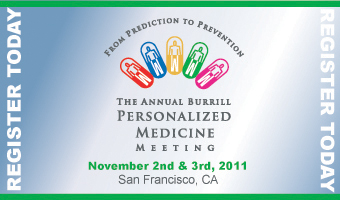“Genetic testing for common disease risk could usher in a new era of personalized medicine.”
Enthusiasm for consumer genetic tests among adults could soon lead to more spit-tests for the preschool set. A survey of parental attitudes toward testing kids’ genetic health risks suggests the future may hold more such testing, not less.
Despite recent controversies concerning the utility, accuracy, and legality of consumer genetic tests, parents are beginning to be swayed by the perceived benefits of testing kids’ genetic propensity for diseases such as cancer, heart disease, osteoporosis, and diabetes.
The study, based on a survey of 219 parents offered genetic testing for eight common adult-onset health conditions, found parents tended to consider the potential benefits of genetic tests for their children would outweigh the risks. Those parents interested in the testing indicated greater interest in knowing about gene-health associations in their child, anticipated less difficulty understanding their child’s genetic health risks, and more positive emotional reactions to learning about their child’s decreased health risks, the study found. Because the study was based on a survey, no children were tested.
Pediatricians “should anticipate parents’ interest in testing children and be prepared to facilitate informed decision making about such testing,” the study’s authors suggest. “Our work with parents offered genetic testing for common preventable health conditions suggests they are receptive to pediatric testing. The DTC market already has recognized this as a target audience and seems ready to embrace them: the health care system has not.”
The American Academy of Pediatrics recommends that genetic testing for adult-onset conditions generally should be deferred until adulthood or until an adolescent interested in testing has developed mature decision-making capacities. But it may be just a matter of time before the association’s best thinking on the subject faces the reality of advertising campaigns targeting their children for testing, a phenomenon that is likely to lead, at least, to greater parental interest in the subject.
"Genetic testing for common disease risk could usher in a new era of personalized medicine,” says Kenneth Tercyak, the study’s lead author and an associate professor of oncology and pediatrics at Georgetown Lombardi Comprehensive Cancer Center. “Someday, this type of information could help jump start conversations about lifestyle risks, and ways pediatricians can help parents and children reduce risk through healthier eating and exercise habits and avoiding tobacco and other substances. We still need to learn more about how to support families regarding choices on genetic tests and in adopting lifestyle changes, and what role high quality genetic information could play in those conversations."
The study, “Parents’ Attitudes Toward Pediatric Genetic Testing for Common Disease Risk” was published in the May issue of the journal Pediatrics. It is part of a larger effort by the National Human Genome Research Institute at the National Institutes of Health to assess the public's use of genetic tests.
April 22, 2011
http://www.burrillreport.com/article-parents_see_benefits_to_testing_kids%e2%80%99_genes.html






.gif)
